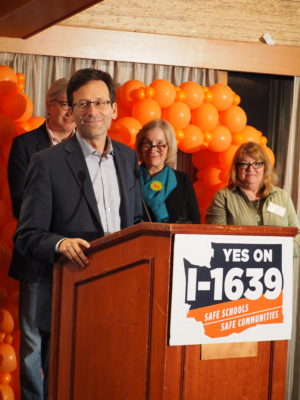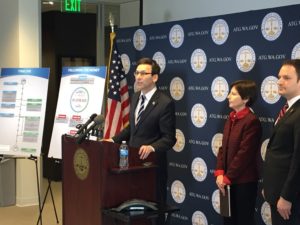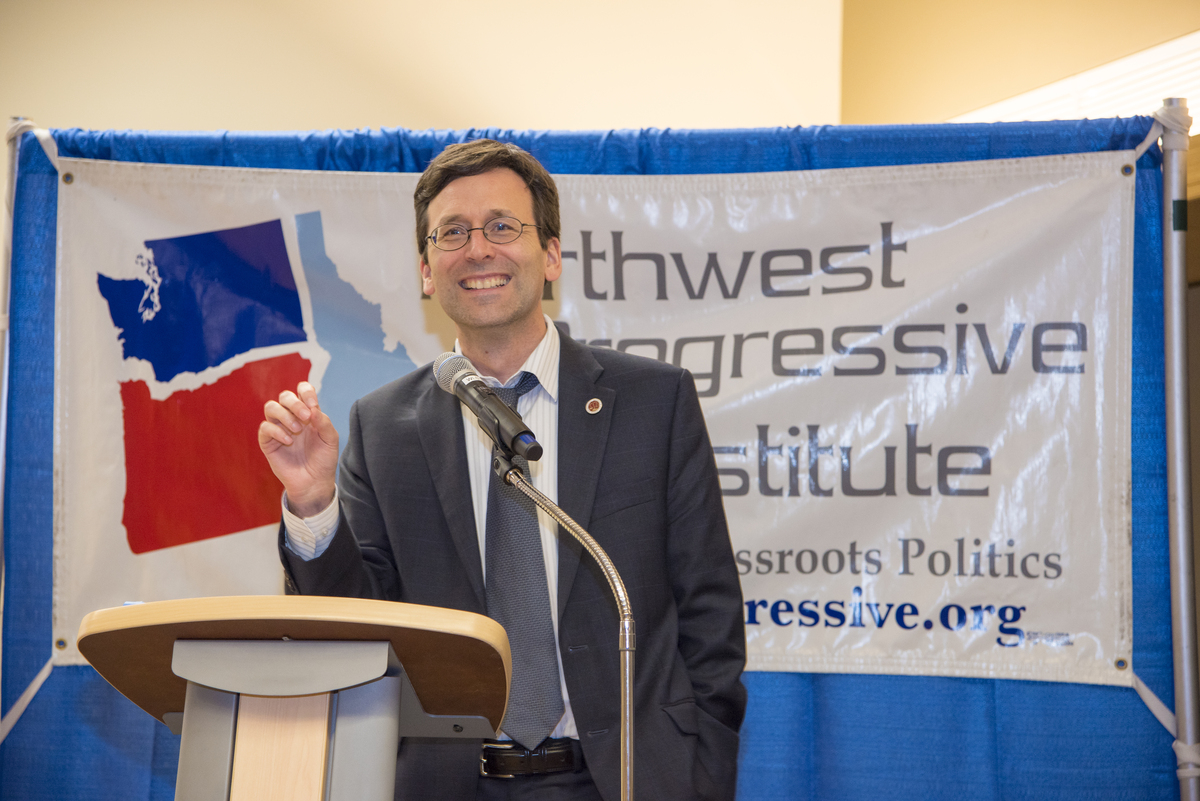Beijing Winter Olympics viewers recently marveled at stamina displayed by Norway’s Nordic skiers and their ability to face subzero temperatures and fierce headwinds on tracks in northern China.
No sooner were the closing ceremonies complete than Washington witnessed several remarkable displays of endurance under pressure by a public official.
We are talking, of course, about State Attorney General Bob Ferguson.
The AG first took out after the Grocery Manufacturers Association in 2013, blowing the whistle on use of a front group called the “Defense of Brands Association” to conceal millions of dollars of donations and identities of the donors. The GMA, since renamed Consumer Brands Association, was spending heavily to defeat an initiative requiring labeling of genetically modified foods and seeds.
Nine years later, Consumer Brands settled the state’s long-running money-laundering suit for $9 million, plus a written apology.
Savor words you will not often read:
“The Grocery Manufacturers Association accepts responsibility for failing to disclose donors in a timely manner on a 2013 ballot initiative and failing to register as a political committee in accordance with Washington State campaign finance laws.”
A day after that, nine state Attorneys General – including Ferguson – witnessed payoff of a gamble they took in long-running lawsuits against Purdue Pharma and the Sackler family, makers and aggressive marketers of the often lethal painkiller OxyContin. The opioid addiction crisis has killed at least 500,000 Americans in the last twenty-three years.
The nine holdouts persuaded a federal judge to reject an agreement signed by every other state. Under a revised agreement, announced Friday, the Sacklers will pay an increase of at least $1 billion while Purdue will put up what is expected to be $1.5 billion by 2024.
“We stood up to the Sacklers and forced them to relinquish more of their fortune to help undo the damage they caused,” Ferguson said. The state’s share will climb, from $70 million to $183 million, over the rejected plan.
Good news comes in clusters.
As the Sackler settlement was announced, the Legislature was completing passage of an NPI priority bill, ESSB 5078, which prohibits the manufacturer, sale, import or transfer of large-capacity magazines that hold more than 10 rounds of ammunition. The legislation was introduced at the request of AG Ferguson.

NPI’s polling found 60% support (and 50% strong support) for legislation prohibiting the sale or possession of high-capacity magazines. The survey by Public Policy Polling pegged opposition at 35%.
Failure by the Washington Legislature to act prompted successful gun safety initiatives on the state’s 2014, 2016 and 2018 ballots.
The ban on high-capacity magazines represents a watershed, legislative action at last. Ferguson has advocated such a prohibition since 2016, when three students were murdered and a fourth wounded at a Mukilteo house party.
The week ended Saturday with a “Freedom Festival” rally in Olympia against COVID-19 mandates and featuring initiative sponsor/grifter Tim Eyman.
Eyman was, as usual, appealing for donations to his legal defense fund.

“Is it any wonder the Attorney General is working so hard to stop all my future political activity?” asked Eyman.
The reality, of course, is a five-year legal struggle that resulted in a $2.6 million civil fine imposed by Thurston County Superior Court Judges James Dixon for what he called “numerous and particularly egregious” violations of state campaign finance laws. Eyman has also been ordered to pay up $2.9 million in state legal costs, the price for stonewalling the discovery process and trying to block requests for documents.
Taking off from an original investigative report by the Public Disclosure Commission that was prompted by a complaint filed by Washingtonians For Ethical Government boardmember Sherry Bockwinkel, the Attorney General’s office made the case that Eyman laundered campaign donations, received kickbacks from a signature gathering firm, secretly moved money from one initiative campaign to another, and hid sources of contributions.
Whew! But there’s more. In the summer of 2020, Montsanto agreed to pay out $95 million to settle a suit filed by the state.
The AG charged the big chemical firm with continuing to produce and market polychlorinated biphenyls (PCBs) even though it knew the hazards to human health and the environment. Washington, in 2016, became the first state to sue.
“Washington has been shouldering the health and environmental costs of PCB contamination and cleanup for decades: This record payment holds Monsanto accountable for the harm they inflicted on our state,” said Ferguson.
Over more than half-a-century, activists have been marching down Seattle’s Pine Street to Westlake Mall chanting, “What do we want? (Peace, freedom, revolution) When do we want it? Now.” Alas, what Dr. King called the “fierce urgency of now,” has not moved causes to the front burner.
Action is in the policy and legal trenches, and often takes years.
What has been different in Ferguson’s case?
Attorneys General savor quick, high-publicity hits, or splashy filings of suits that will go nowhere. (For instance, Texas tried to block counting of some electoral votes in the 2020 election.) It has been considered a victory for public policy when a car dealer agrees to quit rolling back odometers.
Ferguson had a famously fast victory, blocking the Trump regime’s first Muslim travel ban in U.S. District Court and the U.S. 9th Circuit Court of Appeals. The win was amplified by a tantrum from the 45th president and Trump’s reference to a “so-called judge.” Other “wins” were made possible by sloppy legal work, notably failure by the Trump administration to conform with the Administrative Procedures Act when rolling back federal consumer and environmental regulations.
With Ferguson, however, other factors have come into play.

The AG is a chess champion, with expertise in a time-consuming game whose outcome depends on calculation of future moves.
Nor does Ferguson go in for what some corporate defendants call “cost of doing business” settlements, a slap on the wrist fine with no acknowledgment of responsibility or regret. Where there’s a large – or just – reward down the road, he goes for it.
The Attorney General heads Washington’s largest law firm. When Ferguson announces a win, he carefully lists lawyers with the AG’s office who worked on the cause, and co-plaintiffs numerous in such cases as the Sackler-Purdue lawsuit.
He has enjoyed a strong supporting cast. State Solicitor General Noah Purcell argued the Muslim travel ban before the 9th Circuit. Purcell was also called upon to argue the state’s case in the Sackler-Purdue litigation.
The nine states won something more than money. The Sackler family have agreed to place in a public documents repository confidential documents that detail lobbying, public relations, sales techniques and marketing. Aggressive marketing was a key aspect of this state’s case against Purdue Pharma.
Other suits against major drug manufacturers, distributors and such retail firms as Walgreens and CVS are winding their way through the courts.
Washington is pressing litigation against those who distributed, as well as manufactured OxyContin.
The record established by Bob Ferguson makes a point: If managed right, time need not be the enemy of justice.

